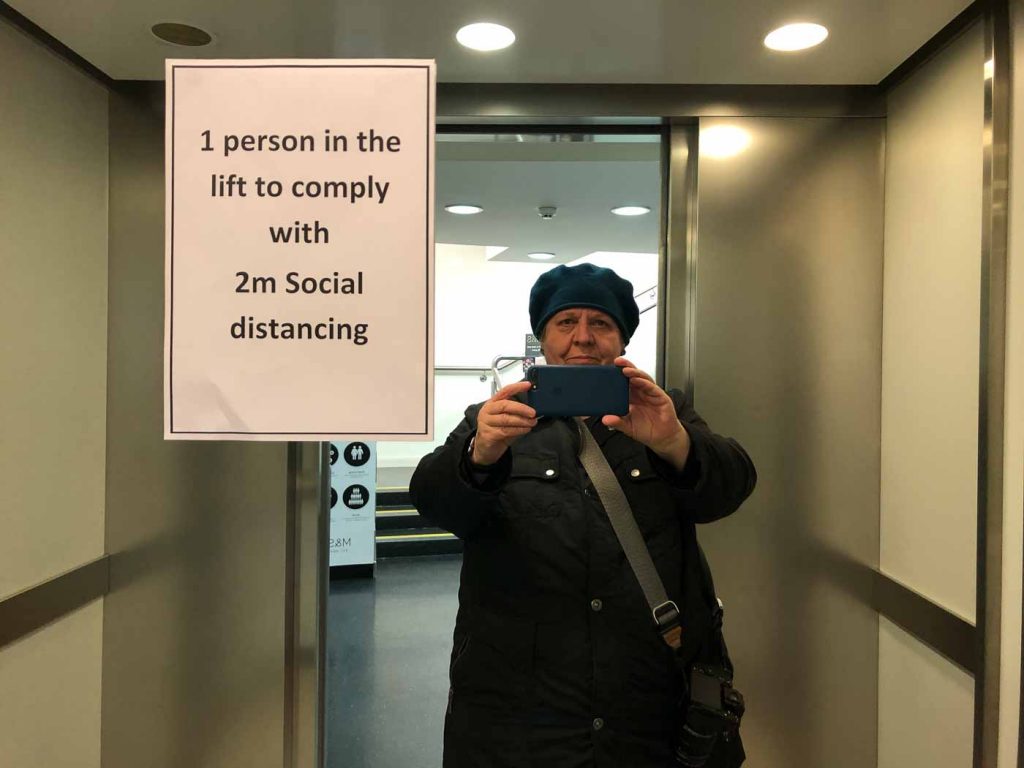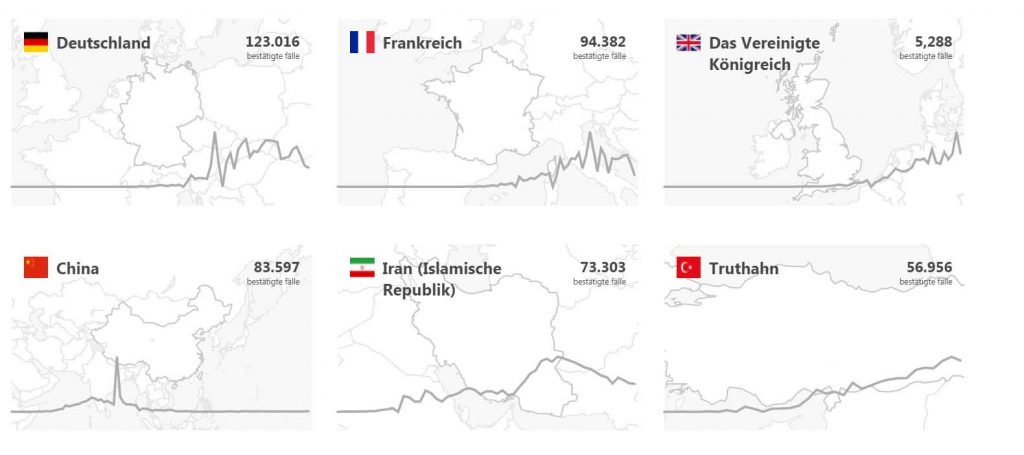Today is the 17th birthday of this blog, started on 15 April 2003, when it seemed obscure to have a weblog with such a narrow focus. Some other blogs of that time still exist.
We are currently in lockdown.

In Marks & Spencer Simply Food in Upminster
Machine translation
Meanwhile, a thought about machine translation. There is a lot more to be said about this, especially DeepL in connection with legal translation. One thing that strikes me is that in the old days, one might adapt machine translation systems to allow for context. But if you go to the WHO site and allow it to translate into German using Google Translate, you get a map of Turkey labelled Truthahn. Context is not taken into account here!
By the way, do people pronounce WHO double-u aitch oh? I usually say World Health Organization. But I heard someone on radio callilng it The Who recently, which I liked.
Screenshot:

Translation blogs
Luke Spear has chosen this auspicious occasion to collate a list of translation-related blogs, not so rare now as they were in 2003.
75+ of the best translation, language and linguistics blogs to follow
This list dates from April 9 2020 and has links to every blog mentioned. In most cases, you need to click on the links to see what the blogs are about. Quite an achievement! Luke asks if there are more blogs that could bring the total up to 100. Abd he wonders if people are blogging less.
Biut more about that in another post.

Congratulations!
I am not sure I would know how to begin translating a machine.
Here’s something from CMOS Shop Talk that caught my eye:
WHO is pronounced as an initialism (like EU) rather than as an acronym (like NASA). And though the World Health Organization generally refers to itself without the definite article … this post follows the more common practice of using a definite article before an initialism used as a noun (“the WHO,” but “WHO guidelines”).
You’ll find the full article here: https://cmosshoptalk.com/2020/04/21/styling-covid-19-and-related-terms/
Thanks for the link, Robin – interesting.
I keep meaning to post a new entry, but the original idea of writing about the history of translation blogs would result in a very long and rather boring screed. Meanwhile the BVerfG has issued a decision on the EZB but this exceeds my powers of comprehension at the moment.
I’m heartened to read the robust response of the ECJ, basically telling the BVerG that it’s out of order:
https://twitter.com/EUCourtPress/status/1258706365331247105
If the BVerG tries to enforce its unlawful decision, I can imagine the European Commission taking Germany to court, just like Poland. What a humiliation.
Yes, I saw that. Thanks for putting the links in.
In my view, that astonishing and alarming BVerfG decision is notable for its arrogance and its ignorance. It panders to a backward-looking right-wing, nostalgic nationalist fringe and seeks to break up the EU by claiming the supremacy of the BVerfG over the ECJ. It’s presumably meant as a swansong for Voßkuhle, who’s retiring tomorrow, but I suspect it will go down as a day of infamy when German nationalism reared its ugly head in a blatant attempt to tear down the house of Europe.
Thanks, that was the impression I was getting from reading about it on Twitter!
Not wishing to be the ‚Devil’s Advocate‘, I recall a line of German Constitutional Court cases that have veritably challenged the idea of primacy or precedence of EU law over German domestic law. Topically, this weblinked article refers to the ultra virus versus ultra vires doctrine https://link.springer.com/content/pdf/10.1007/s12027-011-0200-5.pdf
I also recall UK lawyers, academics, writers and practitioners, arguing that the rules of EU law, like any foreign legal system, are – in private international law vs. (public) international law also known as conflict of laws cf. abe’s conflation of the two in the Twitter feed – merely ‘bolted on’ to the law of England & Wales, Northern Ireland & Scotland, rather than being an overriding part of such and have never ‘merged thereinto’.
I’m afraid you’ve lost me on the twitter reference to abe – and what has public international law got to do with it?
On the Twitter Feed link:
‘Abe: It’s clear that the Treaty of the Functioning of the European Union, which was ratified by Germany, states that only the ECJ/CJEU can resolve *disputes* (between member states).
English excerpt from the judgment in point:
‘ II. In light of the aforementioned considerations, the Federal Constitutional Court is not bound by the CJEU’s decision but must conduct its own review to determine whether the Eurosystem’s decisions on the adoption and implementation of the PSPP remain within the competences conferred upon it under EU primary law.’
My – perhaps obscure – point is that it doesn’t matter whether these are EU matters of private international law (PIL) = conflict of laws or classifiable as matters of public international law (Völkerrecht). The German Fed. Const. Court seems to claim an inherent discretion to ignore both legal systems:
GG. Art. 100 (2) Ist in einem Rechtsstreite zweifelhaft, ob eine Regel des *Völkerrechtes* (= the law of nations / pub. Internat. law) Bestandteil des Bundesrechtes ist und ob sie unmittelbar Rechte und Pflichten für den Einzelnen erzeugt (Artikel 25), so hat das Gericht die *Entscheidung des Bundesverfassungsgerichtes einzuholen*.
Alas, the ex-GDR Constitution (die DDR-Staatsverfassung) – arrogantly swallowed up post-1990 by the Grundgesetz – had been no better
Also:
‘Das Verhältnis zwischen EU-Recht und Grundgesetz kann bis auf den heutigen Tag als nicht eindeutig geklärt bezeichnet werden. Obwohl das europ. Recht prinzipiell Anwendungsvorrang gegenüber *nationalem* Recht genießt (auch gegenüber dem nationalen Verfassungsrecht), steht es *nicht* »über« dem Grundgesetz.‘
https://www.bpb.de/nachschlagen/lexika/das-europalexikon/177026/grundgesetz-und-eu-recht
Maybe I am being thick and barking up the wrong tree…
Thanks. If you are hoping for an argument from me based on some research and reflection, you may have to wait a long time, as I am currently ausgelastet (photography, sourdough etc.).
Kein G’frett and no sweat, Margaret, and congrats on your long T&I or I&T career.
It was actually Robin B.’s contention of German judicial arrogance and ignorance at the BVerfG that I questioned and was being disputational over.
then you should be able to demolish him – if he returns.
Take issue with Robin’s contentions rather than demolish a ‘Scottish semi-compatriot’ and friend of ours.
Note that the tall and non-aloof, retired BVerfG judge I know from Vienna – and who lectures at both Hamburg Uni. and in ‘English’ at Harvard – is anything but ignorant and arrogant.